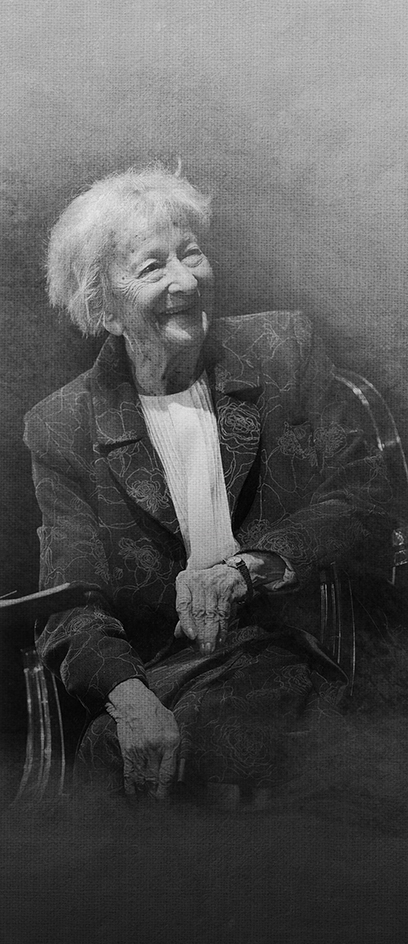
Wisława Szymborska
poet and essayist, laureate of the Noble Prize in literature
(born on 02.07.1923 in Prowent, died on 01.02.2012 in Kraków)
Reading books is the most beautiful game that humanity invented for itself - Wisława Szymborska.
Wisława Szymborska - recognised by the Noble prize committee for irony, as one of the most important existential categories for modern humanity was an absolutely remarkable poet. A friendly personality and keeping a healthy distance to her own work, earned her a large group of loyal readers.
The poetic debut of Szymborska - a young student of Polish studies and sociology at the Jagiellonian University - took place just after the war in 1945. Her first two volumes - Dlaczego żyjemy (That's Why We Are Alive 1952) and Pytania zadawane sobie (Questioning Yourself 1954) were written in the spirit of socialist realism and praise of the then government. The author actively supported communism, including joining the party. Years later she excused this episode of her life as a strong need to find stability after experiencing of war.
A gradual evolution in the works of the poet was seen in the second half of the fifties. The third book of poetry, entitled Wołanie do Yeti (Calling Out to Yeti 1957) was characteristic of Szymborska's later works presenting amazement at the world and looking at it with a healthy distance. Scepticism and the need to reconcile with the past meant that the poet had to settle with her own poetry, recognizing the errors of youth.
In 1966, after the removal of Leszek Kolakowski (philosopher and journalist, punished for criticizing the authorities) from the Communist Party, Szymborska voluntarily gave up her party membership. Earlier she started cooperating with a literary magazine in exile Kultura, which was disliked by the ruling party.
In the seventies her cooperation with the opposition was in a full swing. She published, among others, W Odrze (In the Oder), Twórczości (Creativity), Współczesności (Present Time), as well as contributed to samizdat publications (not officially running due to lack of permission from the authorities) - Arka (Arc) and Pismo (Scripture).
In 1989 Szymborska, along with a group of other writers laid the foundation for the newly emerging Polish Writers Association, promoting the freedom of creativity and respect for human rights.
The crowning achievement of Wislawa Szymborska's poetic activity was a Nobel Prize in Literature which she received in 1996 for poetry, which with an ironic precision allows for the historical and biological context to show up in fragment of human reality.
Throughout her life, the poet was associated with Kraków. She wrote a total of 14 volumes of poetry (including two published posthumously), and many essays. She died in 2012. The urn with the ashes of the Nobel Prize winner is interred in the Rakowicki cemetery.
Do you know?
• During the war, Wisława Szymborska studied in secret, and worked as a railway clerk.
• In the seventies Szymborska was the editor of Życie Literackie (Literary Life). This was Kraków's literary and social weekly, which was one of the first in the country which printed the forbidden works of the disliked by the authorities poets and writers, such as Nobel Prize winner Czesław Milosz.
• Szymborska was in the habit of calling her Nobel award a Stockholm tragedy. Her success and popularity all of a sudden were extremely awkward to her. To the extent that in the next two years she was not able to write a single new line.
• The poet liked kitschy souvenirs, Brazilian soap operas, and one of her idols was a Polish boxer Andrew Gołota.
• Szymborska's poems became the source material for many Polish songs, including Nic Dwa Razy by Maanam and Atlantyda performed by Grzegorz Turnau.
• Szymborska, a year before her death, was awarded the Order of the White Eagle - the highest state distinction in Poland.






